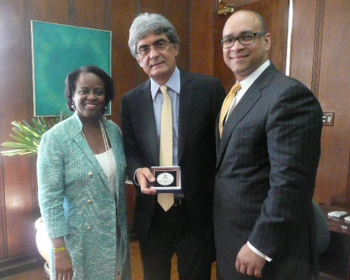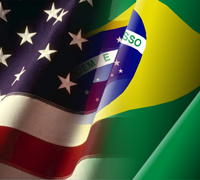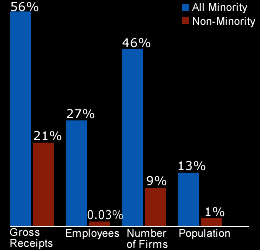Created on September 27, 2012
|
 What’s Level 1A? At Level 1, there is a single innovative idea. It improves or expands the existing business and measuring its success is no different from measuring the performance of the existing business. Also, there is no need to hire new kinds of experts or to substantially change job descriptions or core business process. At Level 1A, innovations can be implemented in a short time period — at most, a few months.
What’s Level 1A? At Level 1, there is a single innovative idea. It improves or expands the existing business and measuring its success is no different from measuring the performance of the existing business. Also, there is no need to hire new kinds of experts or to substantially change job descriptions or core business process. At Level 1A, innovations can be implemented in a short time period — at most, a few months.
Innovation Principles: The most fundamental innovation discipline is one of learning quickly from experiments. That is easiest when feedback is rapid and the innovation makes only limited departures from the existing business. The most prepared innovators identify the specific performance measures that are likely to be affected by the innovation, understand how those changes will impact profitability, and are ready to react quickly should the experiment produce disappointing results.
The discipline of innovation is first and foremost a discipline of experimentation. Innovation projects have uncertain outcomes. Many managers, by training, abhor uncertainty. They endeavor to eliminate as much of it as possible. The more accurate the forecasts, the better the decision-making, the thinking goes.









 What’s Level 1A? At Level 1, there is a single innovative idea. It improves or expands the existing business and measuring its success is no different from measuring the performance of the existing business. Also, there is no need to hire new kinds of experts or to substantially change job descriptions or core business process. At Level 1A, innovations can be implemented in a short time period — at most, a few months.
What’s Level 1A? At Level 1, there is a single innovative idea. It improves or expands the existing business and measuring its success is no different from measuring the performance of the existing business. Also, there is no need to hire new kinds of experts or to substantially change job descriptions or core business process. At Level 1A, innovations can be implemented in a short time period — at most, a few months. Overseas Private Investment Corporation (OPIC) is the U.S. Government’s development finance institution. It mobilizes private capital to help solve critical world challenges and in doing so, advances U.S. foreign policy. Because OPIC works with the U.S. private sector, it helps U.S. businesses gain footholds in emerging markets, catalyzing revenues, jobs and growth opportunities both at home and abroad. OPIC achieves its mission by providing investors with financing, guarantees, political risk insurance, and support for private equity investment funds.
Overseas Private Investment Corporation (OPIC) is the U.S. Government’s development finance institution. It mobilizes private capital to help solve critical world challenges and in doing so, advances U.S. foreign policy. Because OPIC works with the U.S. private sector, it helps U.S. businesses gain footholds in emerging markets, catalyzing revenues, jobs and growth opportunities both at home and abroad. OPIC achieves its mission by providing investors with financing, guarantees, political risk insurance, and support for private equity investment funds. The Department of Commerce's
The Department of Commerce's 
 MBDA National Director Hinson and Shawn Ricks, Senior Advisor to the National Director on Global Affairs began a five-day trip to Brasilia and Sao Paulo, Brazil. This trip will provide an opportunity for MBDA to build relationships with key stakeholder groups essential to reaching its export targets under the National Export Initiative, create greater access to emerging markets for minority business enterprises, and support job creation in the United States.
MBDA National Director Hinson and Shawn Ricks, Senior Advisor to the National Director on Global Affairs began a five-day trip to Brasilia and Sao Paulo, Brazil. This trip will provide an opportunity for MBDA to build relationships with key stakeholder groups essential to reaching its export targets under the National Export Initiative, create greater access to emerging markets for minority business enterprises, and support job creation in the United States.

